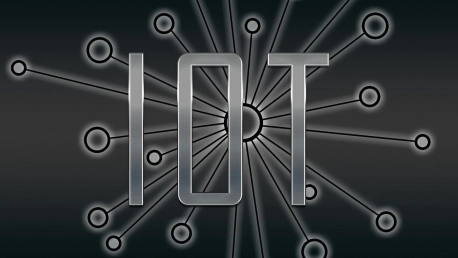Malaysia is at the forefront of integrating cutting-edge technology into its transportation sector, with a focus on sustainability and fiscal responsibility. Datuk Sri Ganes Palaniapan, the Malaysia IoT Association’s deputy president, has proposed an innovative application of Internet of Things (IoT) technology to reinvent the road tax system, particularly for electric vehicles (EVs). This move coincides with the Malaysian government’s vision to cultivate a more eco-friendly approach to road taxation, signaling a robust commitment to environmental sustainability and heralding a new era in vehicular tax policy.
Embracing IoT for Road Tax Equity and Efficiency
The Proposal for IoT in EV Road Tax Management
Datuk Sri Ganes Palaniapan envisions a future where every electric vehicle is equipped with IoT sensors, collecting an array of data on their daily operations. This data includes everything from miles driven to emissions produced, enabling a nuanced view of a vehicle’s environmental footprint. Such a refined approach seeks to replace the existing flat-rate road tax model with a dynamic, usage-based system, aligning taxation with individual vehicle impact. This groundbreaking strategy puts Malaysia on the map as a nation embracing digital transformation for the benefit of fiscal policy and environmental causes alike.
Benefits of a Usage-Based Taxation Model
Transitioning to an IoT-based, usage-sensitive road tax system not only promises a fairer scale of taxation but also paves the way for more diligent enforcement and compliance. Real-time data could significantly deter tax evasion, with authorities able to access up-to-date information regarding vehicle usage. This new level of transparency ensures taxes are not just imposed, but justifiably allocated based on the true impact of each vehicle on the road. IoT’s pivotal role in this taxation model exemplifies the transformative power of technology in enhancing government systems and services.
Preparing for a Future-Ready EV Ecosystem
The Shift to a Greener Tax Structure
The Malaysian government has signaled its readiness for change, with Transport Minister Anthony Loke announcing a sweeping reduction in EV road taxes. Anticipated to commence in 2026, these changes will see a striking drop in rates by an average of 85% compared to taxes on traditional internal combustion engine vehicles. This initiative boldly supports the advancement of a sustainable transport system while also incentivizing the transition to electric vehicles. It’s a testament to the nation’s commitment to forging a cleaner environmental path and embracing a future dictated by innovation and ecological consciousness.
Potential Challenges to Public Acceptance
Despite the evident benefits, the proposed taxation system must grapple with concerns regarding public acceptance. The idea of a major overhaul to the tax system comes with its set of challenges, including the financial implications it poses to traditional vehicle owners, and apprehension about the currently underdeveloped EV charging infrastructure. To ensure a smooth transition, Malaysia must focus on enhancing its infrastructure, thereby reassuring citizens that the shift to electric vehicles is supported by robust and accessible amenities.
Collaboration for Successful Implementation
The Need for Tripartite Partnership
A successful deployment of an IoT-based road tax structure calls for an unprecedented level of cooperation among key industry players – the government, IoT experts, and automobile manufacturers. Each stakeholder brings a vital piece to the puzzle; collectively, they are capable of establishing a policy and technological framework ready to meet the promise of an IoT-integrated future. The government’s provision of conducive regulations, technology companies’ expertise, and carmakers’ integration of these systems from the design phase, signal a harmonized effort towards a cohesive and efficient future.
Maximizing IoT Benefits for Road Tax
Malaysia leads the way in bringing high-tech innovation to its transport realm, emphasizing green practices and budget consciousness. The country’s IoT Association’s deputy president, Datuk Sri Ganes Palaniapan, has introduced a groundbreaking plan to revamp the road tax framework using Internet of Things technologies, with a special emphasis on electric vehicles. Aligned with Malaysia’s environmental goals, the proposed strategy marries fiscal prudence with sustainable measures. The government shows a strong dedication to reducing ecological footprints through this modernized approach to vehicular taxation. This move isn’t just about updates; it represents a significant shift towards a future where technology and eco-awareness drive policy, especially in the automotive sector. As Malaysia takes this step, it sets a precedent for a more environmentally conscious approach to road user charges – a visionary leap in the realm of taxation that could ripple out to set a global standard.









